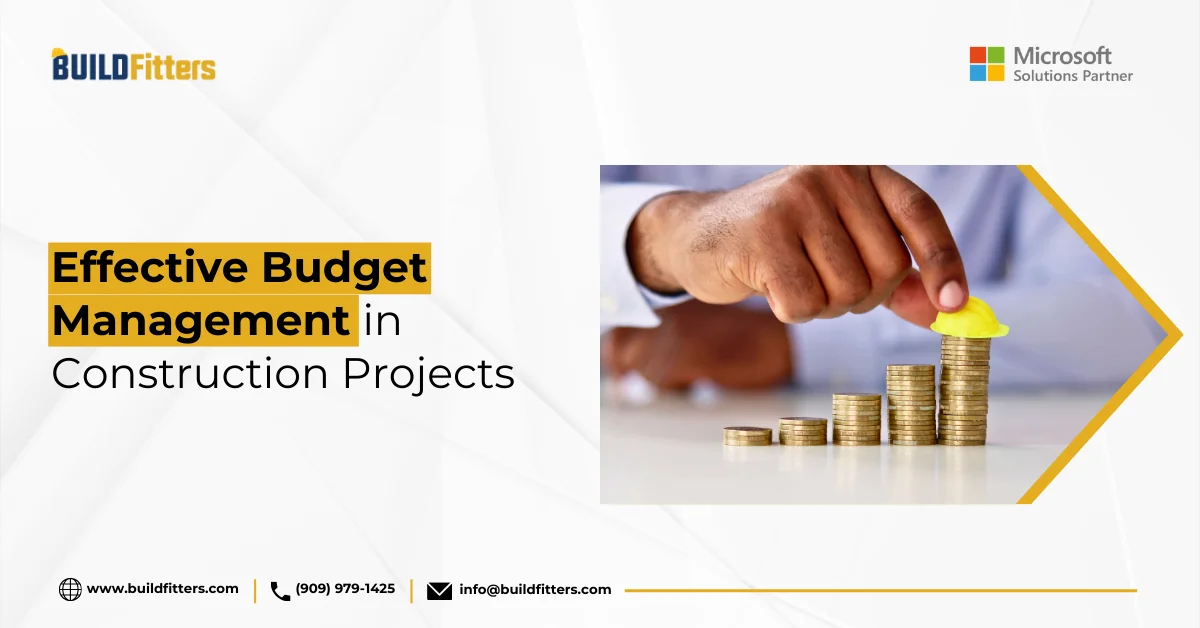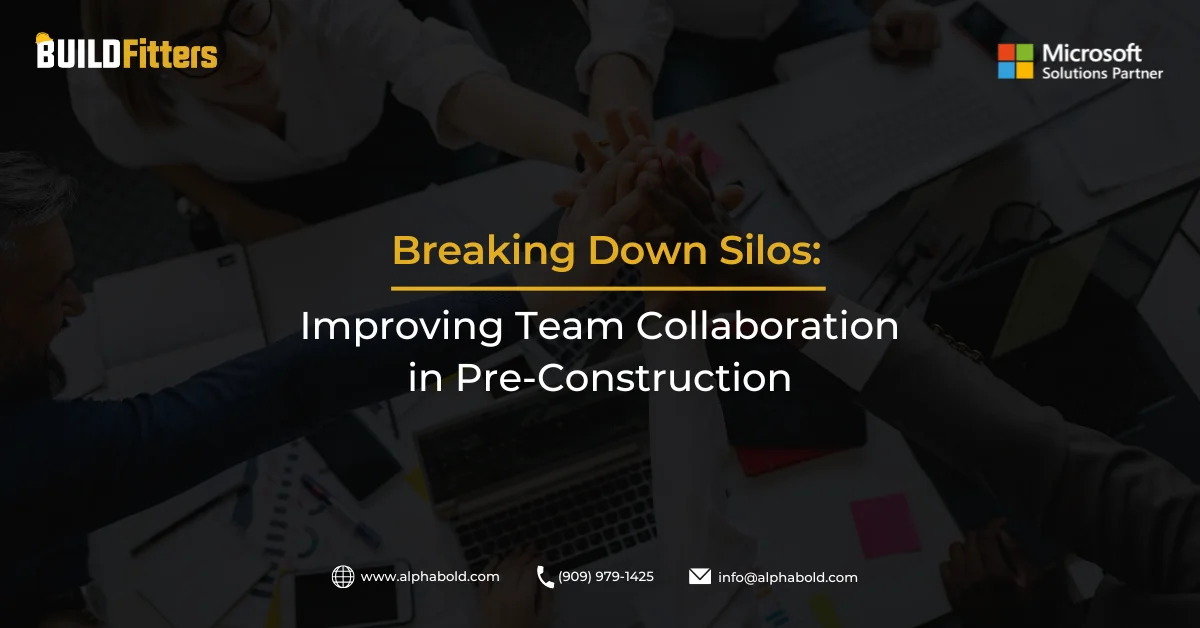
What Is A Construction Planner? Steps To The Perfect Process
In construction management, effective planning is the cornerstone of success. A construction planner is pivotal in ensuring projects are executed efficiently, on time, and within budget. By carefully orchestrating many tasks and resources, a construction planner helps create a roadmap for a successful construction project.
In this blog, we will explore the role of a construction planner and outline the steps involved in creating the perfect construction planning process.
Understanding the Role of a Construction Planner
A construction planner is a highly skilled professional who specializes in project management within the construction industry. Their primary responsibility is to develop and implement comprehensive project plans encompassing all construction aspects, including scheduling, budgeting, resource allocation, and risk management. Construction planners collaborate with architects, engineers, contractors, and other stakeholders to ensure that projects are executed smoothly from start to finish.
Step 1: Project Initiation and Goal Definition:
The construction planning process begins with project initiation, where the planner works closely with the project owner or client to define the goals and objectives. This includes identifying the project scope, budget, timeline, and specific requirements. Understanding the client’s vision and expectations is essential for developing an effective construction plan.
Step 2: Site Assessment and Feasibility Study:
Once project goals are defined, the construction planner conducts a detailed site assessment to evaluate physical conditions, environmental factors, and potential constraints. This includes examining soil conditions, access points, utilities, permits, and regulatory requirements. A feasibility study determines the project’s viability, considering cost, resources, and potential risks.
Step 3: Creating the Project Schedule:
With a clear understanding of the project’s goals and site conditions, the construction planner creates a detailed project schedule. This involves breaking down the construction activities into smaller tasks, estimating their duration, and determining the sequence of activities. The schedule serves as a roadmap for the project team, providing a clear timeline for each task and milestone.
Transform Your Construction Projects with BUILDFitters!
Looking to optimize your construction planning strategies? Trust BUILDFitters to deliver tailored solutions for your projects. Contact us to get started!
Step 4: Resource Planning and Allocation:
Construction planners are responsible for ensuring that the necessary resources, including labor, materials, and equipment, are available at the right time and in the right quantities. They collaborate with procurement teams, subcontractors, and suppliers to coordinate resource acquisition, manage logistics, and optimize resource allocation to minimize delays and cost overruns.
Step 5: Risk Assessment and Mitigation:
All construction projects involve risks, ranging from unforeseen weather conditions to disruptions in the supply chain. In order to tackle these risks, a construction planner conducts a comprehensive risk assessment, identifying potential hazards and developing strategies to mitigate them. This process includes contingency planning, establishing alternatives, and implementing risk management protocols to minimize the impact of unexpected events.
Step 6: Monitoring and Control:
The construction planner closely monitors the project’s progress throughout the construction process, continuously comparing it to the planned schedule and budget. To promptly identify any deviations from the plan, regular site visits are conducted, progress reports are generated, and open communication is maintained with the project team.
This enables timely adjustments to be made by the planner, ensuring that the project stays on track and minimizing disruptions while maximizing efficiency.
Step 7: Project Closure and Evaluation:
Upon completing the project, the construction planner actively oversees the closing process, ensuring satisfactory completion of final inspections, documentation, and handovers. Moreover, they conduct a thorough evaluation to assess the overall success of the project, identifying lessons learned and areas for improvement in future projects.
How BUILDFitters Can Be a Valuable Tool:
In today’s digital era, BUILDFitters is crucial in streamlining and enhancing the construction planning process. Let’s explore how BUILDFitters can be a valuable tool for construction planners:
Project Management and Collaboration: BUILDFitters provides robust project management features that allow construction planners to centralize project information. Additionally, they can collaborate with team members and track progress in real-time. Utilizing cloud-based platforms allows stakeholders to access and update project data simultaneously, resulting in improved communication and efficiency.
Scheduling and Resource Management: BUILDFitters offers advanced scheduling functionalities. Additionally, planners can easily create, update, and optimize project schedules. Automated scheduling tools take into account dependencies, resource availability, and constraints. This enables accurate resource allocation and reduces the risk of conflicts or delays.
Cost Estimation and Budgeting: BUILDFitters incorporates cost estimation and budgeting modules. This enables construction planners to generate precise cost projections and monitor expenses during the project lifecycle. Consequently, it facilitates financial control, identifies potential cost overruns, and supports informed decision-making for optimizing project budgets.
Document and Data Management: Managing construction documentation, such as plans, permits, and contracts, can be a time-consuming task. BUILDFitters provides centralized repositories for storing and organizing documents, ensuring easy access and version control. Additionally, software tools with optical character recognition (OCR) capabilities can extract information from documents, saving manual data entry time.
Reporting and Analytics: BUILDFitters generates comprehensive reports and analytics dashboards, offering valuable insights into project performance. Additionally, planners can analyze key metrics such as project progress, resource utilization, and cost variances. This enables data-driven decision-making and proactive management of potential issues.
Mobile Applications: Mobile applications linked to BUILDFitters empower construction planners to access project data and collaborate seamlessly while on the move. By utilizing mobile devices, they can review plans, communicate with team members, and make crucial decisions directly from the construction site, minimizing downtime and boosting productivity.
Integration and Automation: BUILDFitters can connect with accounting software, document management tools, and ERP systems. This integration streamlines data flow, reduces manual data entry, and ensures data consistency across different platforms.
Conclusion
A skilled construction planner serves as a linchpin for successful project execution. By leveraging their expertise in project management, resource allocation, and risk mitigation, they adeptly navigate the complexities of construction processes. This ensures timely delivery, budget adherence, and stakeholder satisfaction.
Technology solutions like BUILDFitters are the future of construction planning as they enhance the capabilities and efficiency of skilled construction planners, further improving project outcomes.
These tools use AI, data analytics, and collaborative platforms to improve planning.
Ready to learn more? Click here to get in touch with our BUILDFitters experts!
Read More:




